HKUST 2020 Sustainability Challenge
The HKUST 2020 Sustainability Challenge was initiated in 2014-15 as an ambitious plan to demonstrate sustainability leadership in four areas: reducing energy consumption and waste (Operations); setting up campus-wide networks to drive sustainability actions and policies (Communities); designing and implementing novel eco-applications on site (Demonstration); and building an educational and research framework to ensure students graduate with a commitment to sustainability (Education). Each of the focus areas included specific goals which were detailed and measurable. Click here to read the action plan.
Operations Goal
The Challenge identified two specific operations targets: reducing waste to the landfill by 50% and reducing energy consumption by 10% using 2014-15 as the baseline year.
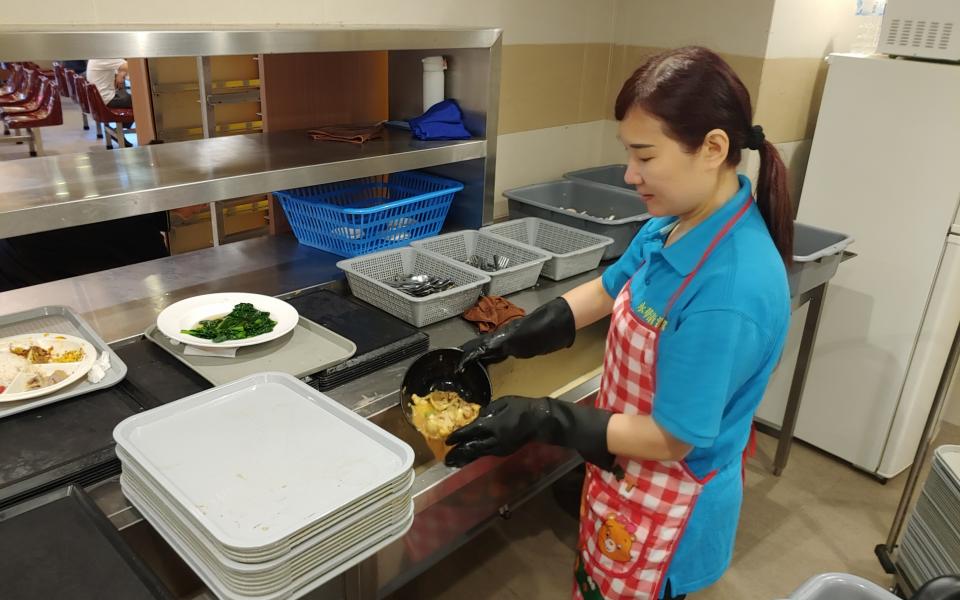
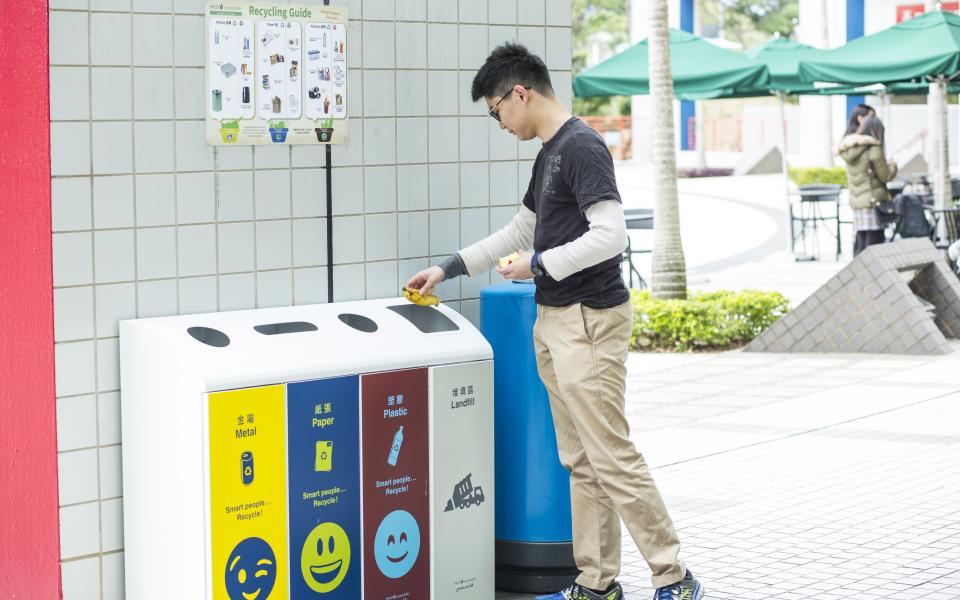
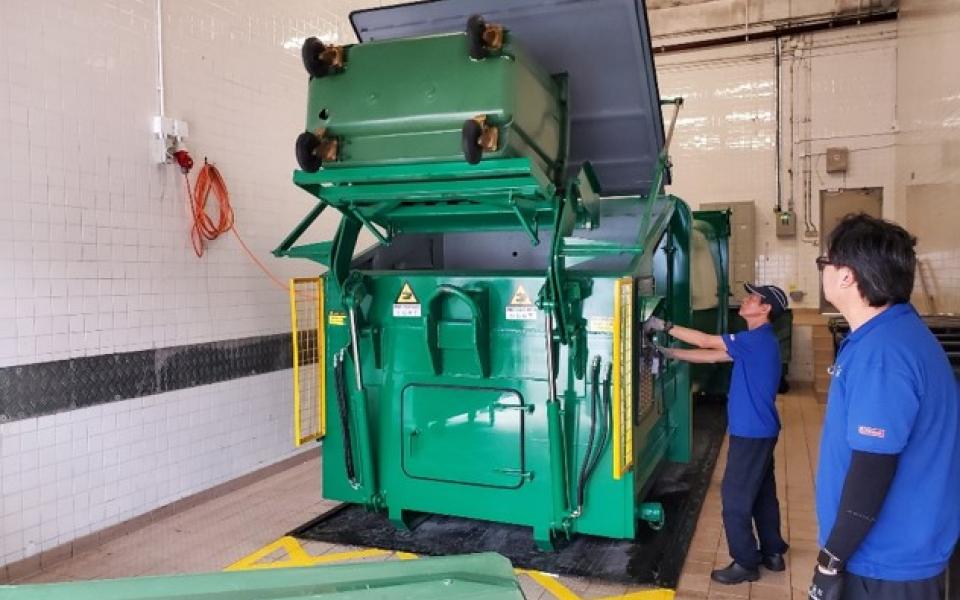
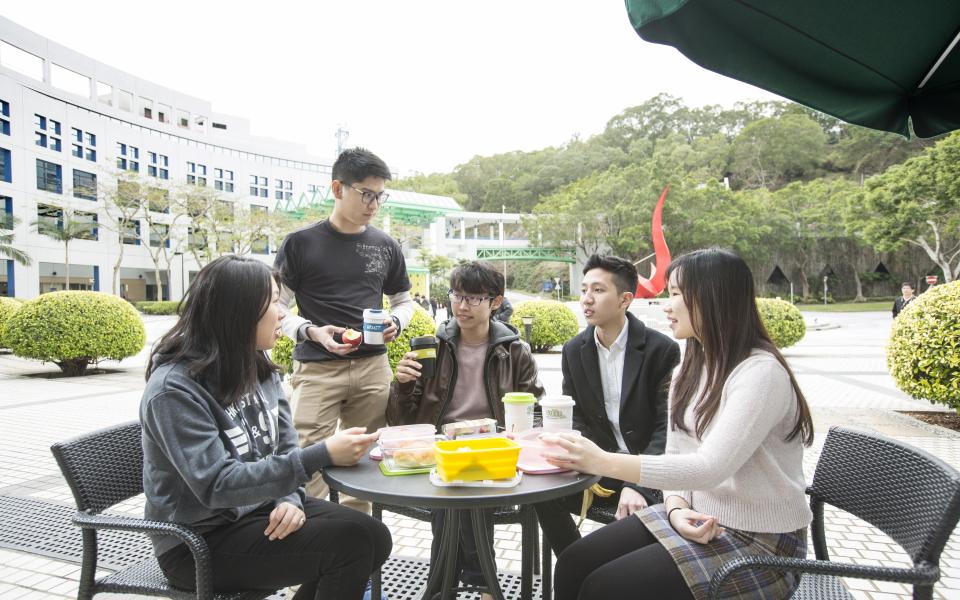
For waste, the 50% target was successfully reached by 2020 by reducing roughly 1,665 tons of our landfill waste. This came from a combination of actions across campus – from eliminating waste at source as a primary focus and from maximizing recycling of any waste generated on campus. For recycling, more than 200 recycling bins and collection stations have now been installed around the campus, over 15 different types of materials get recycled, and a food waste collection program was introduced. Food waste represented the largest source of recycling – encompassing canteens, staff quarters, residences, and offices. The process was streamlined through the adoption of smart technologies to collect precise daily waste collection data and information across the campus using an RFID-integrated electronic scale.
For the 2020 energy goal, the result fell a little short with an actual reduction of 7.9% below the baseline year. However, two major new initiatives were launched in the final year of the Challenge—a large industrial-scale solar energy project, and a strategic cooling tower installation to reduce energy in off-peak times—that will further reduce the energy consumption by an estimated 4.5%, which is enough exceed the 2020 goal when fully operational.
The waste and energy reductions were achieved despite expansion of around 41,500 sq m (8.8%) in campus space and 1,300 (8.2%) more campus users since 2014-15. Put another way, the electricity usage per square meter of space declined by 15%, and the waste per capita reduction was 54%. In practical terms, the electricity reductions were sizable enough to completely offset our four newest buildings, plus two new ones that have yet to be built. The coronavirus pandemic, which made 2020 a difficult target year to assess, was responsible for a portion of the energy and waste reductions because fewer people were on campus during the Spring semester, but on the other hand it increased the amount of disposable waste (like take-away containers and masks), and some of the energy usage simply migrated from the on-campus offices to the on-campus staff residences. All in all, the overall impact of the virus was roughly 4% of the campus totals for both energy and waste.
Click here to read the Sustainable Operations Progress report.
| Baseline (2014-15) | 2020 Performance | Performance compared to baseline | |
|---|---|---|---|
| Electricity (kWh) | 93,067,200 | 85,699,386 | -7.9% |
| Trash (ton) | 3,320 | 1,655 | -50.2% |
| Recyclables (ton) | 114 | 897 | +687% |
| Food waste recycling (ton) | 2.9 | 269 | +9,176% |
| Greenhouse gas (ton CO2-e) | 61,233 | 44,069 | -28.0% |
# Gross floor area and campus population have increased by approximately 41,500m2 and 1,300 respectively since 2014-15.
Community Goal
The 2020 Challenge objective was to “create an HKUST Sustainability Network to form a core social backbone to support and advance sustainability actions and policies across departments, schools, and the campus.”
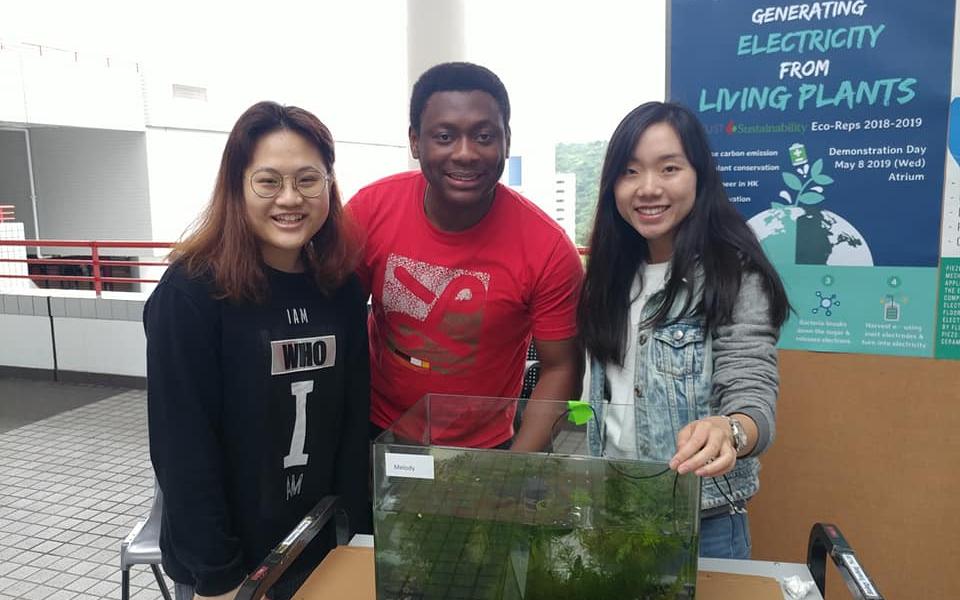
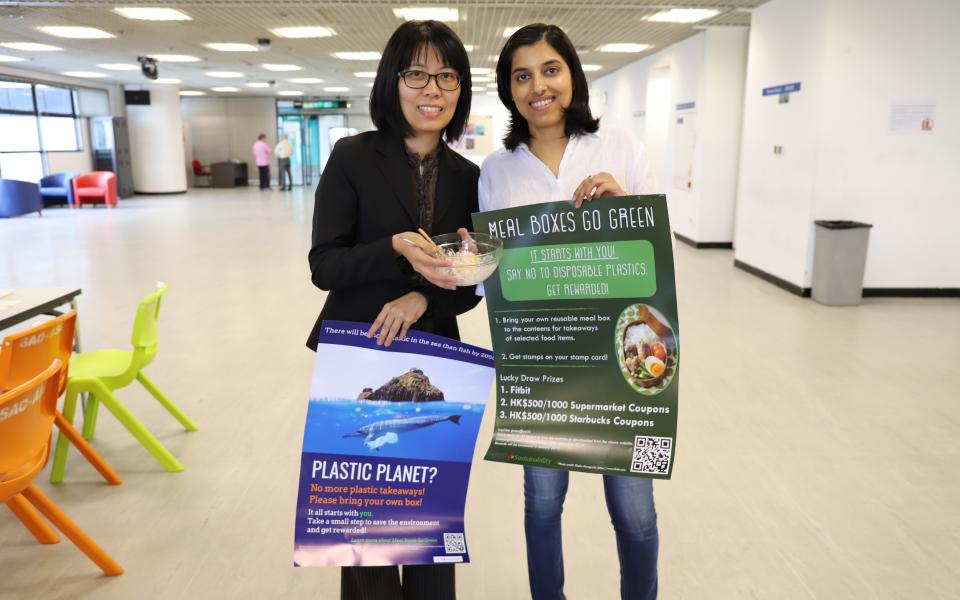
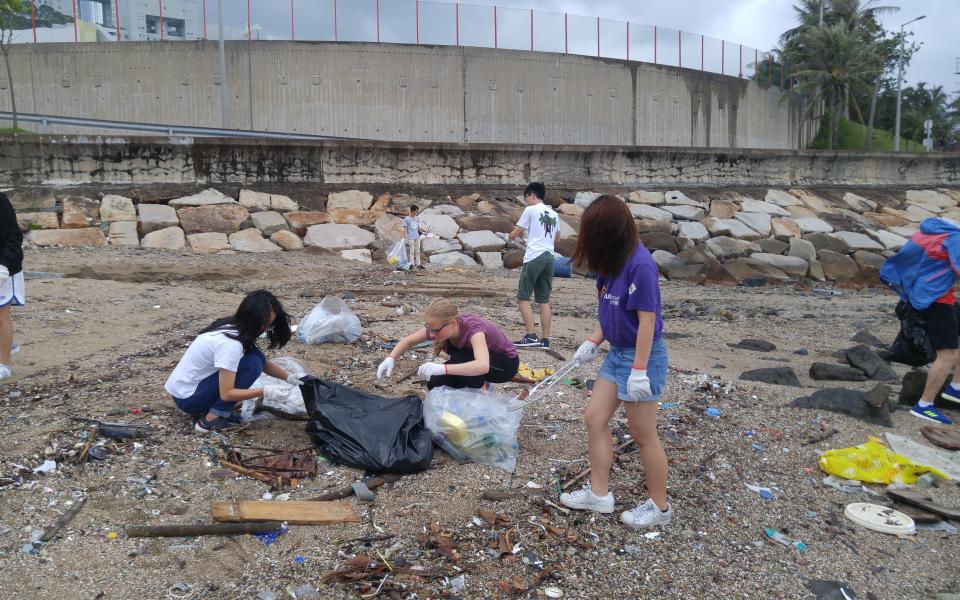

For the sixth year, the HKUST Sustainable Smart Campus Leadership Program engaged 20 student Eco-Reps to design and implement projects to motivate the campus users to adopt eco-friendly behavior. The Green Team engaged hundreds of volunteering staff, students and campus residents to work together on awareness raising campaigns and behavioral change programs such as Meal Boxes Go Green campaign, joint photo exhibition with National Geographic, USTFood sharing platform, vegetarian meal promotion and beach clean-up etc. The Sustainability Network has more than 30 office representatives that shared best practices and helped to engage their colleagues in sustainable office practices.
Demonstration Goal
The 2020 Challenge objective was to “develop visible on-site demonstration projects that contribute to campus sustainability goals while showcasing the work of HKUST researchers as contributors to solving global sustainability challenges.”
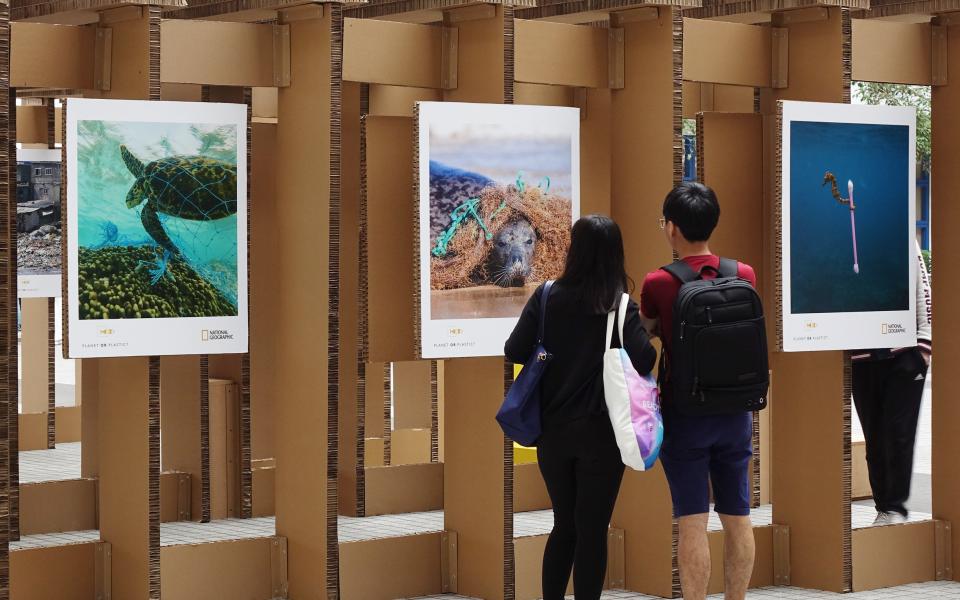
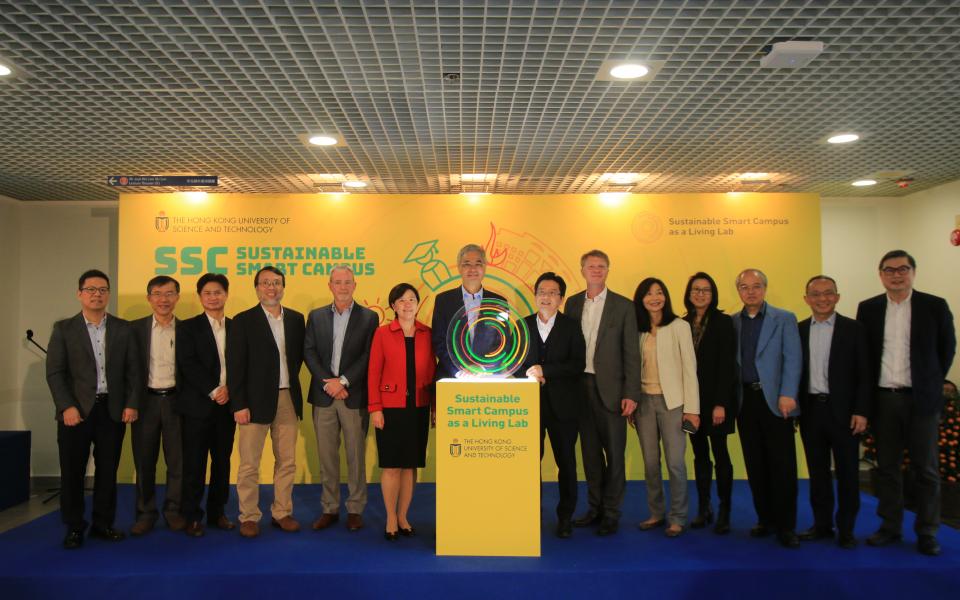
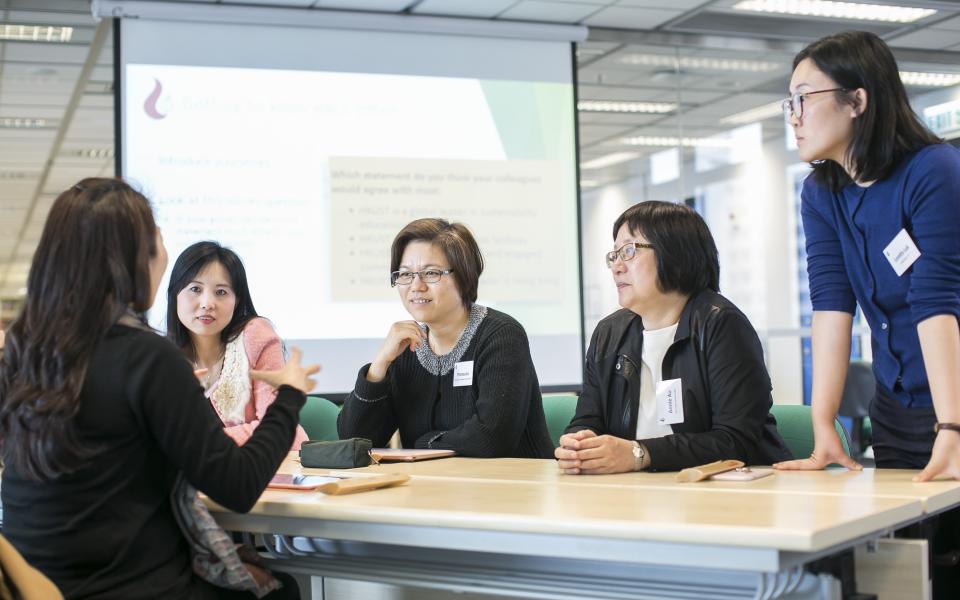
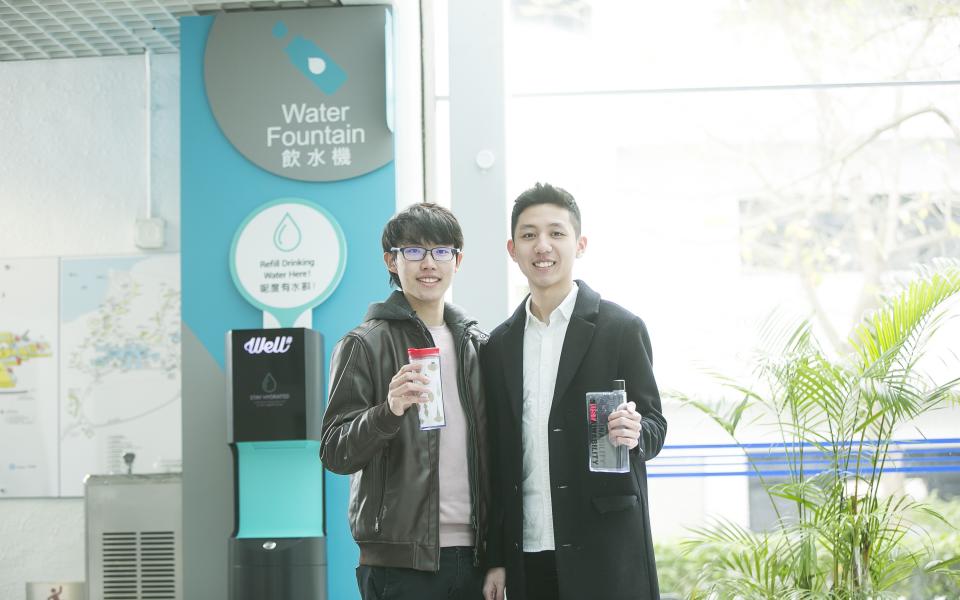
This 2020 goal has been fulfilled by the “Sustainable Smart Campus as a Living Lab” initiative which was launched in 2019. With an initial allocation of $50m, funds are now available for University members to devise and demonstrate innovations on campus as a testing ground for wider application in the future. Since the launch, a total of 19 projects have been funded including the SmART staircase project to test whether vibrant artwork could result in better fitness and well-being. A perennially algae-filled pond was drained, cleaned, and rebuilt with a novel water filtration system. Meanwhile, several on-going projects that utilize the internet of things moved toward deployment, among them an indoor navigation system and a tree health sensor. In parallel, project teams continued to work with video experts and visualization professionals to make these initiatives come alive as learning tools. Students were encouraged to become more involved through group projects and a student paper competition focused on campus sustainability challenges, with the latter drawing 60 entries.
Education Goal
By 2020 we will have an educational and research framework ensuring that students gain a solid understanding of sustainability concepts and graduate with the capacity and commitment to solve problems locally and globally. Leadership provided by the Provost.
The immediate objectives are to (1) construct a sustainability curricular framework; (2) strengthen the administrative and academic connections between the operations and academic sectors of the university to help develop the physical capacity to utilize the campus and grounds as a “living laboratory” for experiential learning in sustainability; and (3) strengthen the support networks available to faculty members to assist with teaching sustainability across different disciplines and curricula.
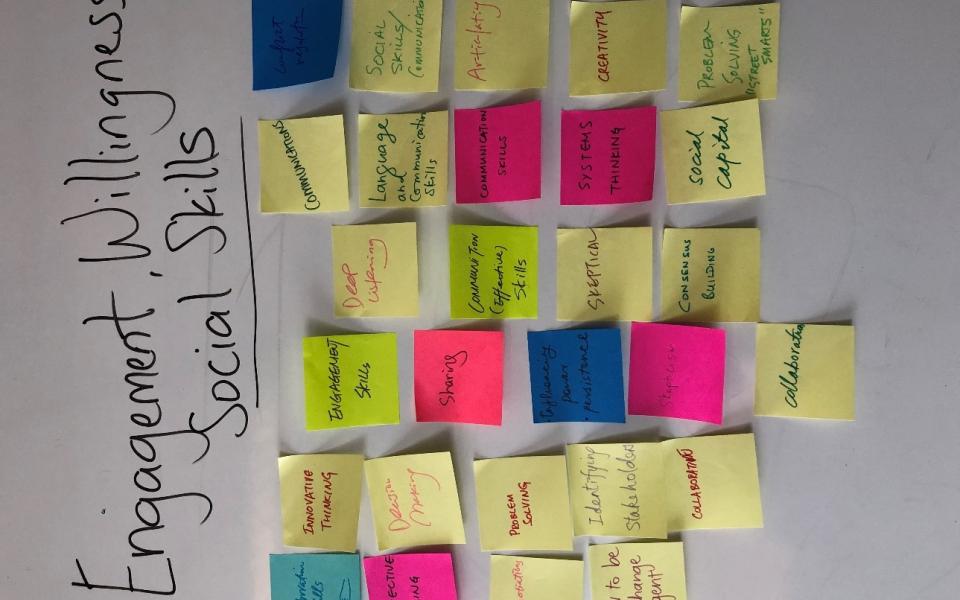
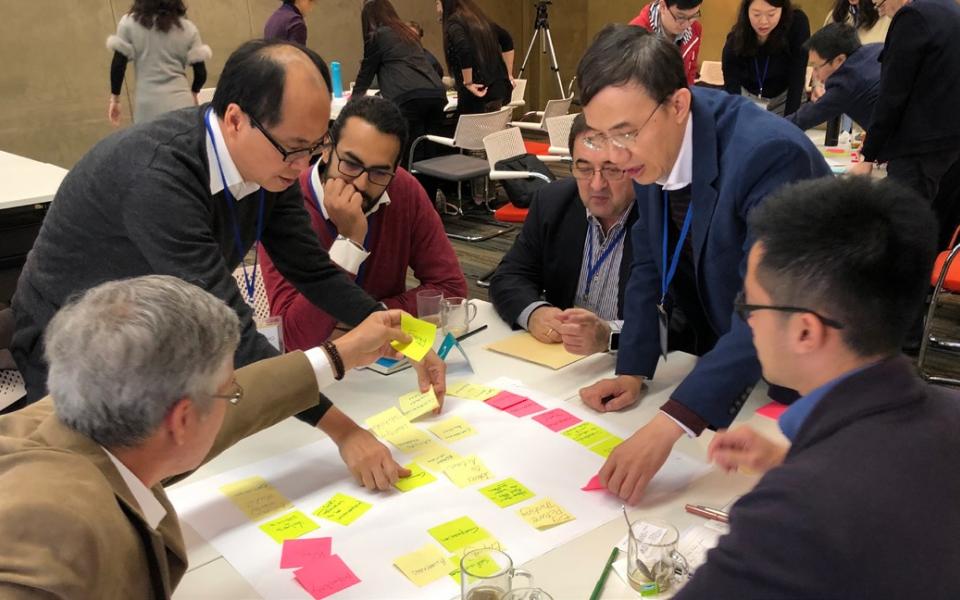
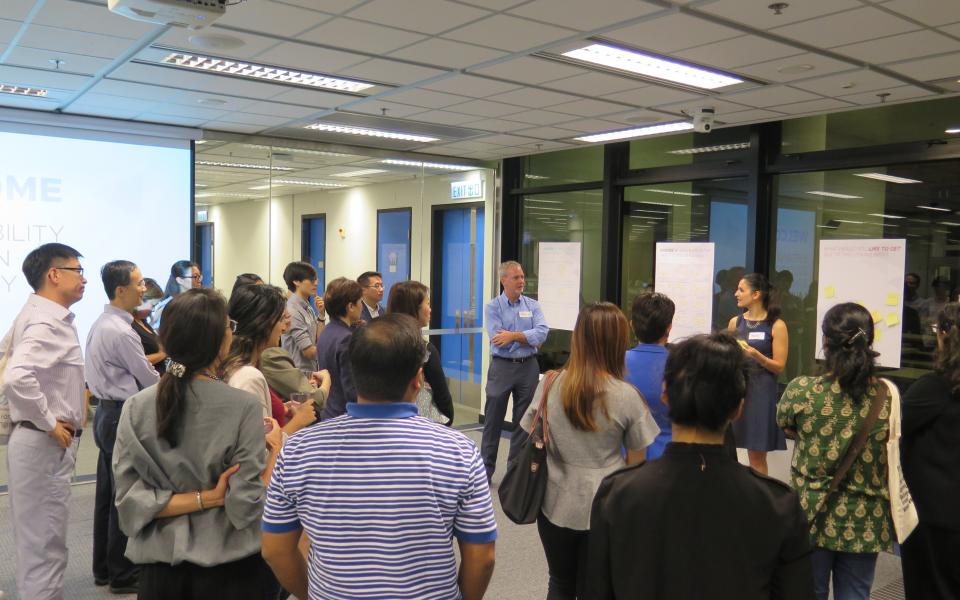
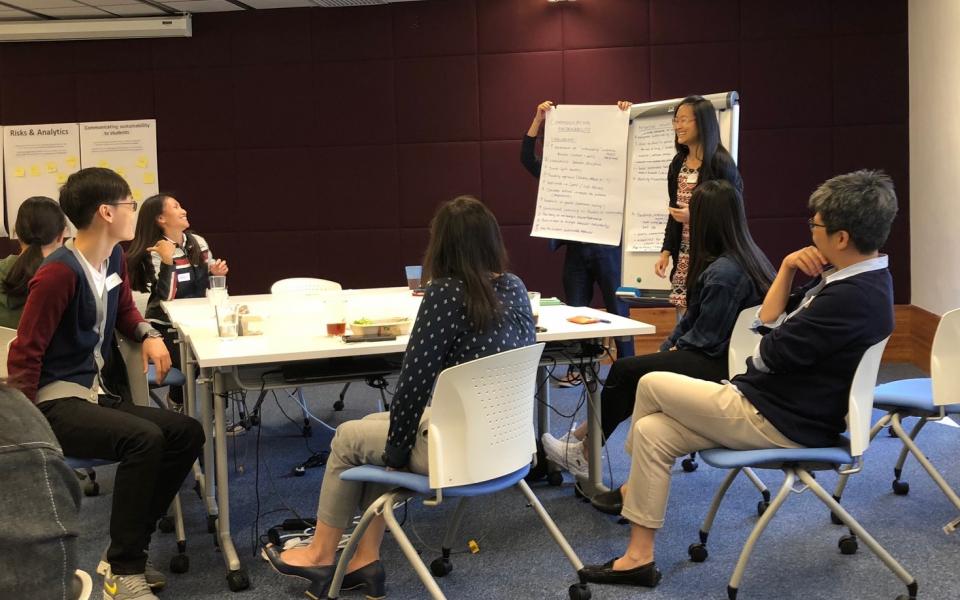
Looking at the curriculum as a whole, the cross-school Sustainability Education Advisory Group, formed in 2017-18, updated its study on the scope and distribution of the University’s sustainability education. Findings showed that as of the 2020 target year, sustainability related coursework comprised around 6% of all undergraduate courses, and 9% of new approved undergraduate courses. The study found that 64% of recent graduates completed two or more sustainability-focused courses before they graduated, and 95% of graduates have taken at least one course. Check out the Sustainability Course Evaluation Report 2020 now.
In 2019, the HKUST Sustainability Education Community (SEC) held our first Sustainability Across the Curriculum workshop with participants from all across Hong Kong. The one-day interactive workshop engaged Hong Kong educators and researchers currently teaching sustainability across the curriculum to explore sustainability-related skills and competencies and share ideas for teaching and learning. Read more by clicking here.
To foster a cross-disciplinary sustainability mindset among students and assist in building the wide-ranging outlook needed to tackle environmental-issues, the Division of Environment and Sustainability developed Life Cycle Thinking, workshops taken by all students from School of Engineering in their 2nd or 3rd year to encourage responsible design decisions and long-term decision-making. In addition, Life Cycle Assessment (LCA) modules are currently piloted for selected engineering courses to equip students with the necessary skills and knowledge to embed LCA into their final year projects. More modules are being developed for other disciplines.